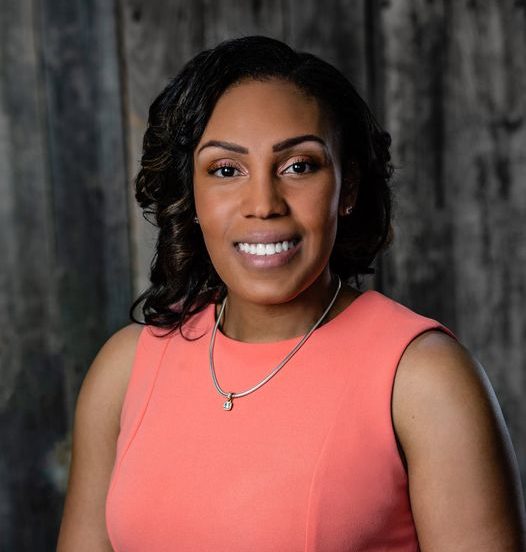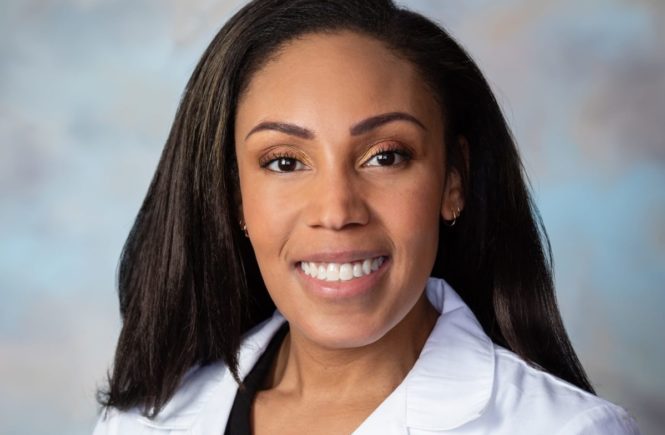Podcast: Play in new window | Download (Duration: 43:44 — 60.1MB)
Discover Lafayette welcomed Surgical Oncologist Dr. Shaunda Grisby of Oschner Lafayette General to discuss her journey in medicine and her mission in helping people be free of breast cancer.
With October being Breast Cancer Awareness Month, a yearly event held to increase awareness of the disease (which is the most common cancer in women aside from some types of skin cancer), it seemed a fitting time to shine the light on Dr. Grisby. A general surgeon, Dr. Grisby is fellowship-trained in Breast Surgical Oncology with advanced techniques such as oncoplastic breast surgery, nipple-sparing mastectomy, skin-sparing mastectomy, and management of benign breast diseases.
Originally from Northern California, Dr. Grisby studied to earn a Doctor of Medicine at the Charles R. Drew University of Medicine and Science and the David Geffin School of Medicine at UCLA, a medical program that “provides training in the scholarly and humane aspects of medicine and fosters the development of leaders who will advance medical practice and knowledge in underserved areas in the United States and abroad.” She went on to be a general surgery resident at Easton School of Medicine in Pennsylvania and completed a breast surgical oncological fellowship in Michigan at the William Beaumont Hospital.
Dr. Grisby’s parents were originally from the Shreveport area, and she had maintained ties to Louisiana. With Louisiana consistently being ranked #3 in breast cancer mortality, Dr. Grisby found Lafayette to fit the bill as the perfect site for her medical practice and to have the opportunity to make a real difference in health outcomes. She moved to Lafayette from Michigan in 2017.
Dr. Grisby believes that education is the first step in helping people become aware of the need to have routine check-ups and prevent cancer from becoming invasive. She has worked diligently to teach breast cancer awareness and breast cancer prevention throughout the region, sharing her compassionate and caring voice to the community. Her message on positive lifestyle choices includes such measures as eating a varied diet with a focus on healthy oils such as olive and avocado and “good” carbohydrates such as fruits and vegetables, getting in exercise for 30 minutes several times a week, and limiting alcohol consumption. It’s been hard during COVID for many of us to get inadequate exercise so her advice is to be creative and fit in exercise when you can, even if it means walking around the house.
In recognition of her work in Acadiana to increase breast health, Dr. Grisby was recently honored as a 2020 SPIRIT OF HOPE HONOREE by the American Cancer Society.

While many believe that having a genetic mutation linked to breast cancer is the biggest risk an individual may face, in fact, approximately 12.5 % of women will develop breast cancer during their lifetime no matter what their genetic make-up or family history is. Standard protocol is that women should begin having mammograms at the age of 40; however, if the individual has close relatives (such as grandmothers, mother, sisters, or aunts on either side of the family) who have had breast cancer diagnosed by the age of 40, they should begin having mammograms by the age of 30 and have additional screenings each year. It is not recommended that mammograms be conducted on younger women as their breast tissue is at a less developed stage and mammograms can be difficult to interpret. Physicians may recommend a breast ultrasound for patients under 30 years of age as the best imaging modality.
Dr. Grisby’s typical patient presents after having a diagnostic screening, diagnostic workup, and biopsy confirming breast cancer. They usually haven’t suspected anything was wrong and are in relative shock at the diagnosis. In that state of mind, it can be difficult to comprehend all of the information being given by the doctor. Dr. Grisby endeavors to explain what the diagnosis means in a simple “story” fashion, in a manner in which it will be easy to understand and remember so that the patient can accurately relate the information to others. Her focus is on the patient and partnering with them as the best options for treatment are discussed; she emphasizes the importance of respecting the patient and instilling in them the confidence to know that she will always be on their team and be there to support them as they navigate their treatment journey.
Most breast cancers are caught relatively early, and before lymph nodes are involved. However, some patients present with a mass that they felt in a self-examination; Dr. Grisby says that you can have a normal mammogram at a yearly screening and six months later feel a lump in your breast. She stresses, “Don’t wait for scheduled yearly screenings if you feel a lump or suspect a problem. You need a diagnostic work-up as soon as possible!”
Breast cancer is treated in a much different fashion from thirty years ago. Surgeons used to aggressively remove pectoral muscles and lymph nodes to ensure that all cancer was removed. People were left disfigured and had long-term health problems resulting from removal of the lymph nodes which are crucial in fighting infections and disease. With advances in radiation treatments and increased knowledge of tumor biologies, breast oncologists can also perform sentinel lymph node biopsies which are much more precise in targeting the cancer sites.
COVID has caused major challenges and oncologists have had to pivot in managing their options during the pandemic just as the rest of society has. While telemedicine is a great tool, it is not always an effective option to utilize with older patients who aren’t tech-savvy. Surgeries had to be postponed during the shutdown, thus preventing many cancer patients from having scheduled procedures, and the usual sequence of treatments were modified if deemed to be an effective alternative.
As some types of breast cancers are slow-growing, the waits were not deemed life-threatening. Pre-COVID, some cancers would typically be treated with chemo to shrink a mass and these treatments could still be administered during COVID. Other breast cancers that respond favorably to hormonal therapies were treated with medications until operating rooms were able to reopen. Studies are being conducted on cancer patients being treated during the COVID shutdown to assess outcomes of treatment during these trying times.
Dr. Shaunda Grisby’s office is located in the newly renovated Lafayette General Breast Center at 1448 South College Road. For more information or to schedule an appointment, visit www.lafayettegeneral.com/breast-center or call 337-571-1300.




